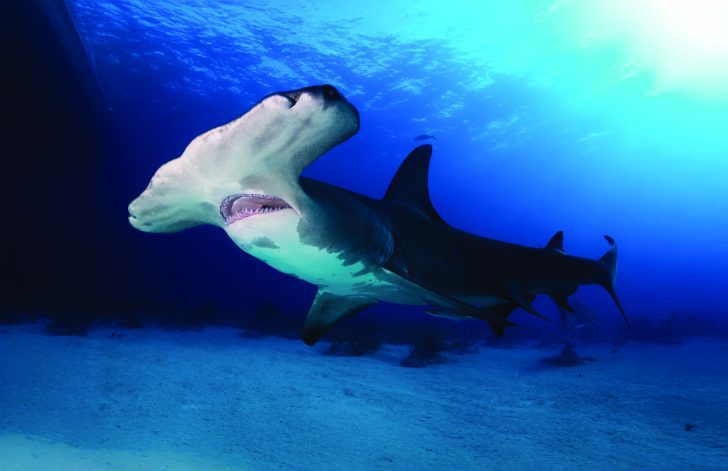By: Capt. Tim Ramsey

Okay, personal admission, I don’t like fishing alone. I know I should, but I don’t. I realize in my life it was somewhat inevitable; my wife spends time caring for elderly parents back in Panama and my son would grow up one day and move away, friends work, my brother is out of the picture, people have other things to do, but I still haven’t gotten used to it. I see other men out on their boats alone and it makes me sad. I like sharing fishing experiences. However, sometimes you need to fish so out you go. This was one of those times.
I launched the Skeeter by myself out of Calusa Island Marina in Goodland and rode out into Gullivan Bay to go run the stone crab traps for tripletail. It’s one of my favorite things.
I found a line of traps that ran east-west about a mile out from the Ten Thousand Islands, lowered my trolling motor, and started my hunt. Tripletails are weird. I’m not sure if they protect crab buoys, think the buoys protect them, stare at the buoys over some strange affection for them, or use them as some type of reference point. I’m also not sure why they like to lay on their sides. Some people say it’s them imitating tree leaves. What would they know about leaves? All I know is, it helps spot them.
Having fished for tripletail for years, I learned if at first you don’t see a fish on a buoy, look around. They like to float on their sides and make a wide circle away from the buoy, eventually going back to it. I also think the fish are territorial, and here’s why. I never use a live bait or try to get bait hanging under a float near the buoy. These fish seem irritated that something else is approaching “their” buoy, and they turn to attack. I use a red and silver bucktail jig with a white Gulp curly tail attached, and they go for it all the time. See one floating away from the buoy, cast the jig past it and you’ll see the fish turn and dive on it. It’s great fun. It’s also great fun to release them. Sure, tripletail are excellent table fare but cleaning them is a royal pain, worse than sheepshead, and I don’t usually keep fish.
That day, I fished the line of stone crab buoys all the way until I ran into boats fishing a local tarpon “hot spot.” There, a couple boats had given up on tarpon and were fishing the buoys, so I had a snack and watched the action for a while as I let the current slowly move me away from the area. It was then I noticed a bunch of bait schools doing what’s called “flushing,” where predatory fish underneath them force them to break the surface in a boil from one side to the other. Their effort to avoid an attacking predator causes a commotion you can both see and hear.
As I got closer to the closest bait school, I realized they were being hit by a school of small blacktip sharks.
“Hey, check this out,” I said involuntarily. I forgot I was alone. I had never seen a school of blacktips before and stood with my rod in my hand just watching them for a while. It was disorganized chaos. There was no concerted effort like with dolphins taking turns herding the bait and others eating or pushing them into a tighter bait ball so they could be attacked as fish circled like mackerels. It was every man, or shark, for themselves.
Finally, I cast my red and silver bucktail over the bait school and reeled it back through it. Bam. A little shark bit. I reeled it in and hauled it out of the water. It bounced around on deck for a moment, then stopped. I plucked the hook from its mouth with a dehooker and threw it back. I repeated this process a few more times before it looked like the sharks were swimming away.
Using the trolling motor, I went over to another school of bait and looked around. More blacktips. I hooked one that got off right away, then immediately hooked another. As I reeled the blacktip in from behind the boat, it made a sudden turn and surge to the west, swimming frantically as if completely ignoring the fact it was on the end of my line. Then, as if appearing from behind my 200 Yamaha, a hammerhead shark was chasing the blacktip. This was no longer fighting against the irritation of being on a hook. It was fleeing for its life.
